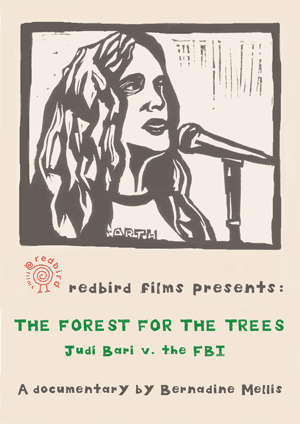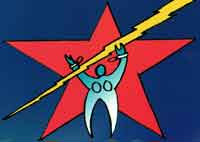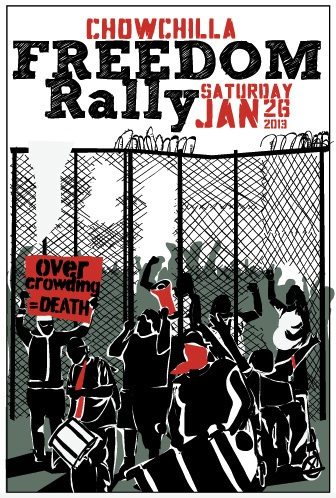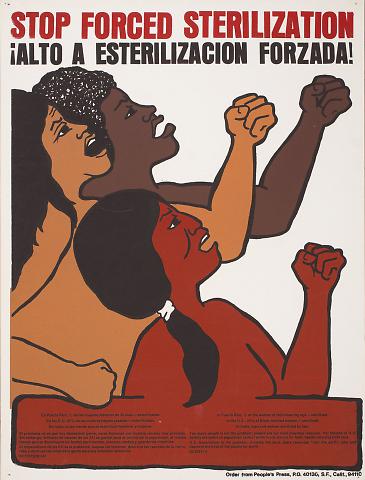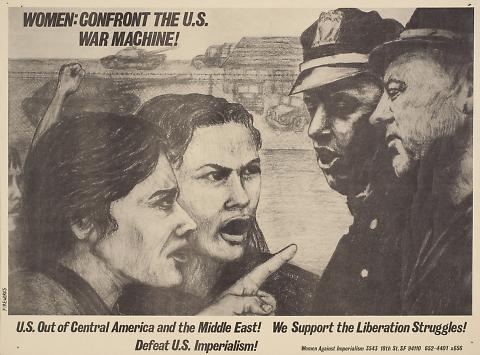Gender and Sexuality
This collection features materials from a number of sources focusing on struggles revolving around gender and sexuality. These struggles are not separate from larger struggles for liberation but specifically incorporate unique voices and perspectives.
Subcollections
-
Connexions
Connexions is the collective product of feminists of diverse nationalities and political perspectives committed to contributing to an international women\'s movement. -
Feminist and Lesbian Politics: Monographs-Periodicals-Articles
This collection contains materials focusing on radical feminist and lesbian politics. While diverse in medium and subject matter, this collection contextualizes women’s liberation highlighting issues of class, race, sexuality and imperialism. -
Materials shot and collected in the making of The Forest for the Trees
Raw materials from the documentary "The Forest for the Trees" which details the amazing story of the fight to clear Earth First! activist Judi Bari's name after her car was bombed and she was arrested as a terrorist. -
Out of Control: Lesbian Committee to Support Women Prisoners
Out of Control (OOC) was a self-supporting committee formed in 1987 to organize resistance to the Lexington Control Unit for women. -
Prisons - Women
This collection contains materials relating to the specific conditions, challenges and struggles facing women in prison. Topics are varied but materials include conference papers, informational materials, legal perspectives and audio recordings. -
Programs produced by Judy Gerber and Laurie Simms
This collection contains grassroots radio programming produced by Judy Gerber and Laurie Simms. This programming primarily occurred during the 1980s and 1990s. -
Sterilization
This collection contains materials focusing on the sterilization of women and efforts to resist this practice. -
Violence Against Women
This collection contains materials focusing on violence against women. Specific topics covered include women who fight back against their abusers, rape, pornography, sexism and self-defense. -
Women Against Imperialism
Women Against Imperialism was a grassroots, feminist, anti-imperialist solidarity organization formed in San Francisco in 1981. Women Against Imperialism’s work primarily consisted of direct action organizing and political education activities.
Documents
2 Documents Found
Date: 12/16/1994Call Number: JG/ 088BFormat: Cass BProducers: Judy GerberProgram: A Defiant HeartCollection: Programs produced by Judy Gerber and Laurie Simms
News Report on Mexico, December 1994. EZLN returns to militarized activity in Chiapas with the appointment of a new PRI governor to that state. To foster a closer examination of the recent Mexican elections, there is a reading from the November 'Latin American News Update' that exposes injustices and even electoral fraud in the PRI dominated elections. Reports have surfaced in 'Excelsior' that there were patterned anomalies in the election's voting records, representing a culture electoral impunity. Rural elections were significantly less clean than those in urban areas; in widespread cases, ballots were not marked, polls were not opened on time, and re-voting and violations of secret ballot were allowed.
Reading of a December 10, 1994 article from 'Peace Net' by Herman Bellinghausen. This article reports the EZLN's remilitarization and notification of civilian areas for future war under Geneva Convention procedures. Bellinghausen notes mass population movements, town preparations, and a large army presence in Chiapas. U.S. Human Rights Watch condemns the U.S. and other Western powers for putting trade before human rights.
Date: 10/1/1995Call Number: JG/ 092AFormat: Cass AProducers: Judy GerberProgram: A Defiant HeartCollection: Programs produced by Judy Gerber and Laurie Simms
Interview with Martha Reese, anthropology professor at Agnes Scott College in Georgia on her work in Southern Mexico and Central America. Reese describes her work in Guatemala with organizing women textile workers and describes the dangers that such women face. She notes that women have become increasingly bold despite attacks against them. Reese then describes the
Mexican crisis of legitimacy in Chiapas, including popular protest movements and the militarization of the region. She fears an army takeover of the Mexican government with the breakdown and bankruptcy of the PRI. She describes the poor economic situation in Mexico and describes local coping methods. She very harshly criticizes the U.S. state department. Not an objective interview.
2 Documents Found



